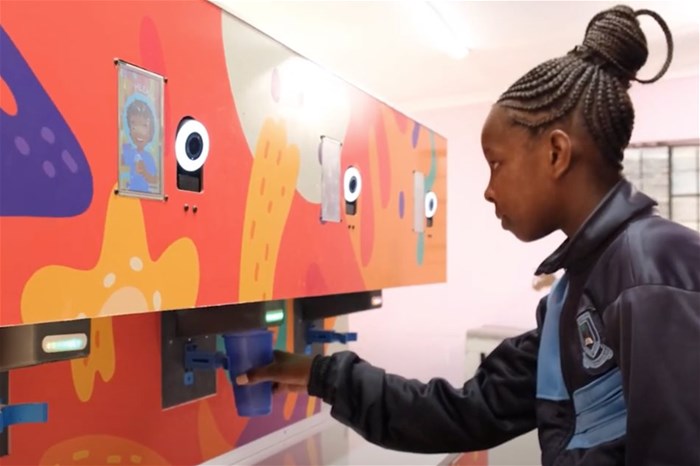Smartfill technology is emerging as a game-changer in the retail packaging space. Initiated by Smollan as an R&D project, and developed by digital transformation agency DY/DX as a solution for packageless retail, this technology is set to redefine how we think about packaging and its role in the circular economy.
At its core, smartfill technology is designed to optimise retail packaging through a smart, efficient and sustainable solution.
"A true circular economy solution is not just about recycling, it's about completely rethinking how products are packaged and delivered to consumers, reducing waste and improving efficiency," says Nevo Hadas of DY/DX.
There is a clear and urgent need to rethink retail packaging and business models fully within different market contexts, according to Hadas.

Image supplied
“While recycling may work well in Europe, in developing markets where recycling facilities are often unavailable, the current models fall short. The smaller packaging to cater for these markets means more plastic waste and less product, exacerbating environmental issues, while failing to meet consumer needs for affordability,” he says.
Packageless retail solutions
Smartfill technology, with its focus on packageless retail, offers a viable solution. By reducing the need for traditional packaging and enabling more efficient product distribution, it can help address both the waste issue and the need for cost-effective retail in under-serviced areas.
One of the most compelling examples of Smartfill's potential is the success of the Spar Tembisa pilot in South Africa. Customers can use their own containers or paper bags, fill them with the desired amount of product from Smartfill dispensers, and only pay for the product they take.

Image supplied
"This pilot demonstrated strong consumer demand, strengthening the retailer business case for packageless retail. Consumers purchased varied amounts that are not prepackaged on shelves, while the retailer enjoyed higher margins by selling from bulk at small-size prices. The pilot tripled the sales of product under 1kg, moving over 550kg of product," says Hadas.
Similarly, a Unilever pilot in Bangladesh showcases the adaptability of Smartfill technology. The project focused on delivering personal care products in a packageless format, demonstrating that even industries heavily reliant on traditional packaging can successfully embrace this new approach.
The initiative supports Unilever’s global work to reduce the impact of its products when used by consumers. Unilever Bangladesh’s work in sustainability, including the Smartfill refill dispenser as a solution for the mass market, was presented to the Prime Minister of Bangladesh, Sheikh Hasina, to great acclaim.
Smartfill's potential extends even beyond retail. A school pilot with fortified food manufacturer Millhouse in Hilton, Kwa-Zulu Natal, South Africa, shows that this technology can also play a pivotal role in addressing malnutrition.
By using Smartfill systems, the school is providing the nutrient-rich Endgame formula to students, monitoring usage with smart face recognition technology and providing an advanced way to manage stock replenishment and logistics.
Hadas says that adopting new technologies and human-centred design thinking is critical to solve retail packaging challenges, and it is exciting to see how this approach can be applied to societal challenges as well.
"Taking innovative approach to packageless retail, as well as embracing the potential applications of Smartfill across a variety of sectors, has the power to transform our approach to sustainability and efficiency. As we move towards a more circular economy, solutions like Smartfill will be instrumental in paving the way for a more sustainable future."






































